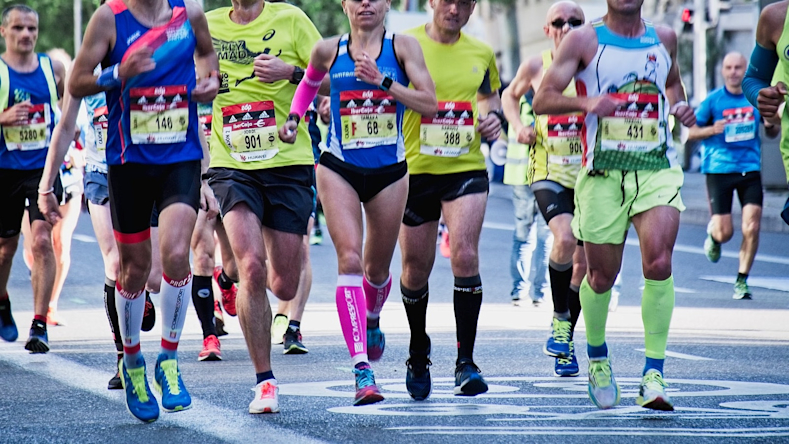What does running a half marathon do to your body?
This question is about Running
Strenuous exercise, such as running a half marathon, can lead to a temporary increase in markers of acute inflammation, such as white blood cells, cytokines and creatine kinase, compromised immunity, and skeletal muscle damage [ 2 3 3
Running a half marathon may also lead to dehydration, depleted muscle glycogen stores and fatigue. Some people experience digestive changes and loss of appetite immediately after a half marathon, followed by a stronger appetite in the days following. Incorporating proper recovery after a half marathon is important to counteract muscle breakdown, decrease inflammation and speed up recovery [ 4

People also ask:
References:
Nieman, D. C., & Wentz, L. M. (2019). The compelling link between physical activity and the body's defense system. Journal of sport and health science, 8(3), 201–217.
https://doi.org/10.1016/j.jshs.2018.09.009
Faria, F. R., Gomes, A. C., Antunes, A., Rezende, K. R., Pimentel, G. D., Oliveira, C., Antunes, B. M., Lira, F. S., Aoki, M. S., & Mota, J. F. (2020). Effects of turmeric extract supplementation on inflammation and muscle damage after a half-marathon race: a randomized, double-blind, placebo-controlled trial. European journal of applied physiology, 120(7), 1531–1540.
https://doi.org/10.1007/s00421-020-04385-7
Clifford, T., Allerton, D. M., Brown, M. A., Harper, L., Horsburgh, S., Keane, K. M., Stevenson, E. J., & Howatson, G. (2017). Minimal muscle damage after a marathon and no influence of beetroot juice on inflammation and recovery. Applied physiology, nutrition, and metabolism = Physiologie appliquee, nutrition et metabolisme, 42(3), 263–270.
https://doi.org/10.1139/apnm-2016-0525
Wiewelhove, T., Schneider, C., Döweling, A., Hanakam, F., Rasche, C., Meyer, T., Kellmann, M., Pfeiffer, M., & Ferrauti, A. (2018). Effects of different recovery strategies following a half-marathon on fatigue markers in recreational runners. PloS one, 13(11), e0207313.
https://doi.org/10.1371/journal.pone.0207313
